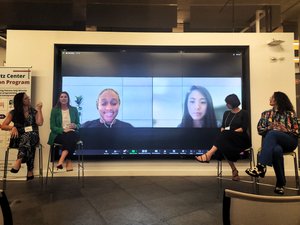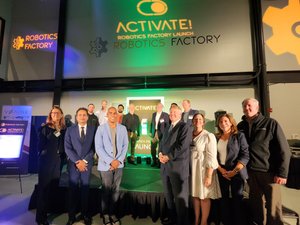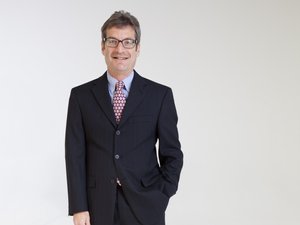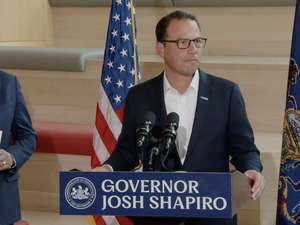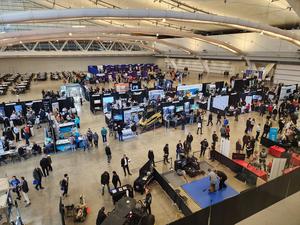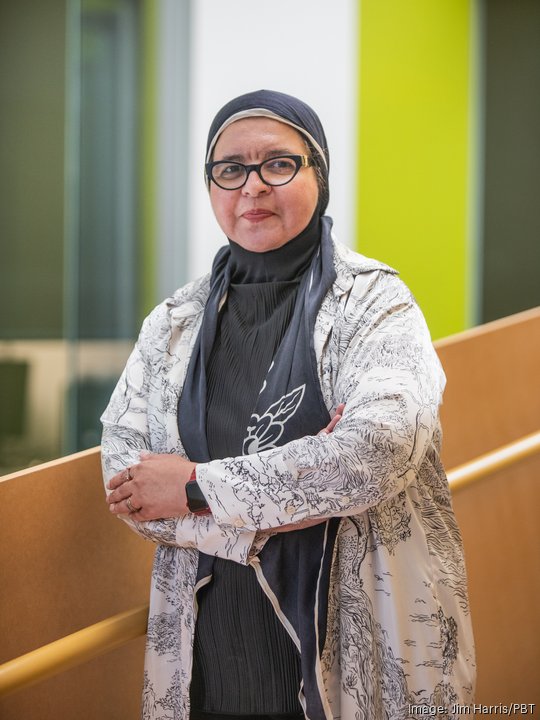
Mona Diab was appointed to serve as director of the Language Technologies Institute within the School of Computer Science at Carnegie Mellon University this past August. It’s a position for her that follows high-level development stints at Facebook parent company Meta Platforms Inc. and Amazon Web Services, the cloud-based subsidiary of Amazon.com Inc. At the LTI, Diab oversees the work of 28 professors and researchers who are working on behind-the-scenes technologies that make popular voice assistant products like Amazon’s Alexa and Apple Inc.’s Siri possible across languages. With the advent of consumer-facing artificial intelligence chatbots powered by large language models, Diab sees the work of the LTI growing to even greater significance in the next few years.
Can you explain what you do in terms a person who isn’t in your industry can understand?
So I work on what’s called natural language processing, which essentially means we take natural languages that people speak — like French, English, German, Arabic — and we build computer algorithms to process them. So think about something like Google Translate, where basically the back engine that actually does the translation is work that people like myself do. Things like Google search — the back engine comes from people who work in the information retrieval component of our field and are the ones who build the algorithms that actually do the search using natural language. And when I say natural language components, that’s something like, “find me the closest CVS.” That’s a command that’s put in natural language and therefore it’s taken in and basically processed into the zeros and ones, and it returns the relevant pages that are in response to that question.
How did you end up doing this type of work?
My interest in language has always been since I was maybe 12 years old. I grew up bilingual English-Arabic. And I recognized the importance of language when we moved; my parents used to live in England, so when we moved back to Egypt, I didn’t speak a word of Arabic. So they put me through some intensive educational Arabic classes. But I only learned one form of the language, which is known to be formal Arabic. … But when I went to school, I couldn’t speak Arabic with the kids because my Arabic was that distant, formal version, not the local vernacular that was spoken by kids my age. I recognized that hindrance very early on. I think I was around eight or nine at the time.
And then there was one funny incident that happened when I was around 12. My mother made some pasta, and the pasta was in the shape of the alphabet, but it was the English alphabet, and I was like, “Wait a second, how come our trees don’t produce pasta that’s in Arabic? Why is it pasta in English?” And my parents were, first off, shocked that I thought that pasta grew on trees. But the second part was this whole thing of native language or native dialect was very prominent in my mind very early on. So I’ve always been interested in language.
When I went to college, I did computer science. And to be honest, I was interested in the math more than the actual computer side of things until I took a course in AI, and that’s when [I realized] it has all kinds of psychology, philosophy, language aspects to it, and that’s where my passion started really hitting hard. So I decided to go for my Ph.D., and I came to the [United] States with the intention of going back. But then that never happened. What ended up happening is that I got really good job positions in the sense that it wasn’t like I was seeking those specific institutions. It was really about me following my passion.
Now that you’re leading the LTI, how do you envision its purpose changing over the years ahead?
I built or helped build several of the language models that came out from Meta, and my angle on it was the responsible aspect: How do we make sure they … don’t cause harm? And this is a big agenda item I have on my mind in terms of my research agenda. But the responsible thinking aspect of this is essentially how do we build talent that goes out proactively able to heed those kinds of problems and is able to design our algorithms from the get-go, taking these safety measures into consideration.
And I started realizing, you know what, we need disciplines like that, universities that actually cater to that talent gap. And so I would love for people graduating or people working here to have that signature [experience]. To be like, if you graduate from CMU LTI, you’re known to be an engineer who knows exactly how to do things and design things in a responsible manner.
What’s your go-to fun fact about yourself?
I can read hieroglyphics, if that’s a fun fact.
Yes, that’s a fun fact. Why can you read hieroglyphics?
I was trained as an Egyptologist as well. I did a double major in computer science and Egyptology, which is kind of a weird thing.
ABOUT MONA DIAB:
Title: Professor and director of Language Technologies Institute, Carnegie Mellon University
First job: Tourist guide and software engineer
Education: B.S., computer science, The American University in Cairo, Egypt; master’s, Egyptology and archaeology, Helwan University in Cairo; master’s, computer science (AI and machine learning), George Washington University; Ph.D., computational linguistics, The University of Maryland
Family: Husband Kamel Ayari
Hobbies: Reading, hiking, Pilates
Causes: Diversity and inclusion, religious and political freedoms, women in STEM and technology
